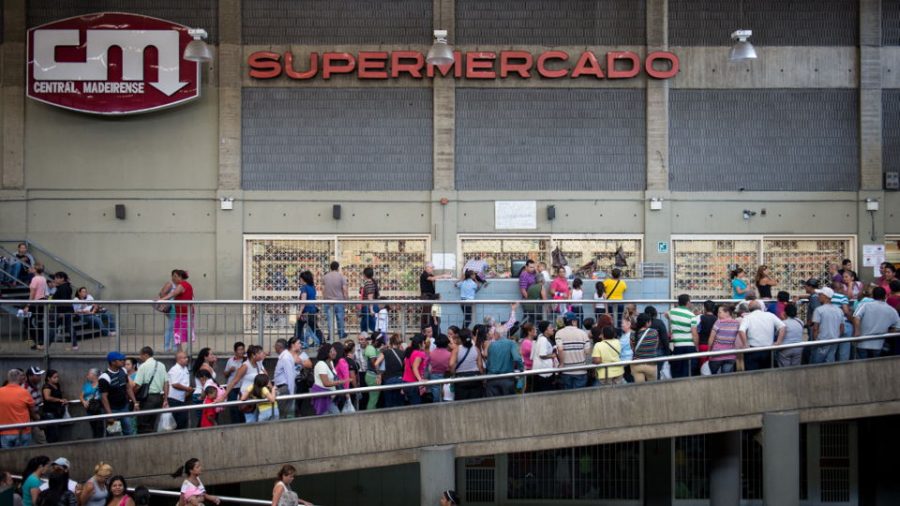Families suffering in Venezuela due to protests
A lack of basic goods, inflation, a rise in prices, and violence escalate throughout Venezuela. Protests rise after multiple murders occur leaving citizens distressed and irritated. These protests originated in 2014 and are still continuing today. Despite the protests, citizens are still left with a lack of goods for their everyday life.
On Sep. 1, 2016, the largest protest occurred. One million Venezuelans gathered to demand a recall against President Maduro, who was the President as the need for necessities expanded and inflation occurred. President Maduro is still legally president as of Feb. 13, 2019. However, President of the National Assembly, Juan Guaidó, has been recognized as the interim President by many citizens of Venezuela and other countries.
As the protests continue and the position of president is still undetermined, families and residents still suffer from the lack of necessities. They’re experiencing shortages of medicine and medical supplies, which can be detrimental to those who are sick or injured, especially during the abundance of protests.
More importantly, there is a continuous shortfall of food. The undersupply of this food was caused by stealing and high food prices due to the little available food. Some examples of specific food shortages are milk, butter and rice.
Many think that the Venezuelans should just flee, however that’s not always the best idea.
“More than three million of an estimated 32 million Venezuelans had fled their country since 2014,” Human Rights Watch (HRW) said.
The Venezuelans who have fled can’t obtain work permits for them to earn money for their family and themselves. They are also unable to send their children to school because they are most likely not registered as a citizen in that country that they have fled to. Due to these citizens leaving the country unexpectedly, they also cannot receive health care because of the same reason that they can’t send their children to school. They also most likely don’t have a job because of their recent flee. All of these fleeing citizens would be classified as aliens since they are not registered. They also run the risk of not being able to get a job because of their status as an alien.
The protests allow people to stand up for themselves, but they also bring violence. According to venezuelanalysis.com, within three months, 126 people have died due to the anti-government protests since April 4, 2017. This does not account for the deaths from July 12, 2017 up until now. There are also people living in this country that have been severely injured by the protests.
In 2015, the Venezuelan government started a group called Operation Peoples’ Liberation (OLP). They started this group to help raise awareness of increasing security concerns. These security concerns were about the increasing rate of violence with the stealing of necessities and protests.
“In November 2017, the attorney general said more than 500 people had been killed during OLP raids. Government officials typically said they died during ‘confrontations’ with armed criminals, claims challenged in many cases by witnesses or families of victims,” HRW said.
As the protests and the presidential crisis continues, many people are put in danger. Whether it’s from the lack of basic goods or violence occurring in the country, even those who flee the country are in danger. Until these protests are over, these citizens will be at risk of the lack of food, medical supplies, necessities, money and safety.



